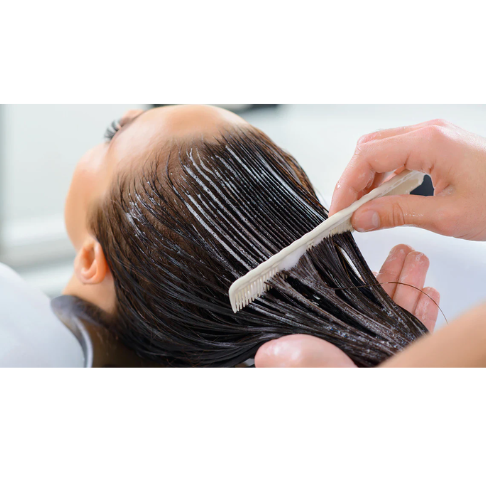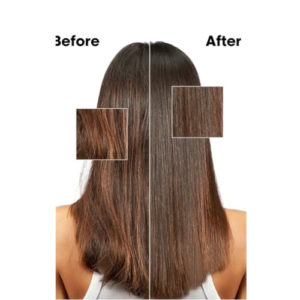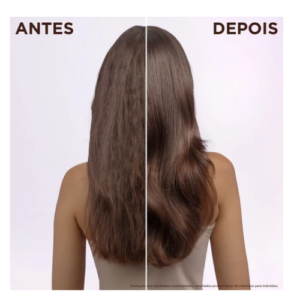What are the Advantages and Disadvantages of the Hair Mask? Hair masks have become an essential part of hair care routines, providing deep nourishment and targeted benefits for various hair concerns. However, like any other hair care product, they come with both advantages and disadvantages. Understanding these can help you make an informed decision about incorporating them into your hair care regimen.
Advantages of Hair Masks
- Deep Conditioning and Moisturization
- Hair masks penetrate deeper into the hair shaft compared to regular conditioners, providing intense hydration and nourishment. They help restore moisture levels, making hair feel softer, smoother, and more manageable.
- Improves Hair Texture
- Regular use of hair masks can significantly improve hair texture. Ingredients like shea butter, avocado, and coconut oil smoothen rough strands, enhance shine, and reduce frizz, making hair appear healthier and more vibrant.
- Strengthens and Repairs Damaged Hair
- Hair masks are particularly beneficial for chemically treated, colored, or heat-damaged hair. They contain ingredients like keratin, proteins, and essential oils that repair the hair shaft, strengthen weak strands, and reduce breakage.
- Boosts Hair Growth
- Certain hair masks contain ingredients like castor oil, rosemary, and biotin, which stimulate the scalp and promote hair growth. They improve blood circulation, nourish hair follicles, and create an optimal environment for healthy hair growth.
- Reduces Hair Fall
- Masks containing natural ingredients like amla, aloe vera, and henna help reduce hair fall by strengthening roots and minimizing hair shedding. They also provide a soothing effect on the scalp, reducing issues like dandruff and irritation.
- Adds Shine and Volume
- Hair masks infused with vitamins, proteins, and natural oils add a natural sheen to the hair. They also provide body and volume, making thin hair look fuller and more voluminous.
- Tackles Specific Hair Concerns
- Hair masks can be customized to address specific hair concerns, such as dryness, split ends, dandruff, or color damage. There’s a wide range of masks for every hair type and problem, making it easy to choose the one that suits your needs.
- Easy to Use and Apply at Home
- Most hair masks are user-friendly and can be applied at home without needing professional help. This makes them a convenient and cost-effective option for maintaining hair health.
Disadvantages of Hair Masks
- Overuse Can Weigh Hair Down
- Using hair masks too frequently, especially on fine or thin hair, can lead to product buildup and make hair feel heavy, greasy, or limp. It’s important to use hair masks in moderation, typically once a week or as recommended.
- Potential for Ingredient Sensitivity
- Some hair masks contain strong ingredients that may cause allergies or scalp sensitivity in certain individuals. It’s crucial to check the ingredients list, do a patch test, and choose masks that suit your hair and skin type.
- Can Be Time-Consuming
- Hair masks usually require a longer application time compared to regular conditioners, often needing 15-30 minutes to work effectively. For those with a busy schedule, this added time can be a drawback.
- Not Suitable for All Hair Types
- While some masks work wonders for dry, coarse, or damaged hair, they may not be suitable for oily or fine hair. The rich formulation can lead to excess oil production or make thin hair appear flat.
- Cost Factor
- High-quality hair masks with premium ingredients can be expensive, making them a less affordable option for regular use. However, DIY hair masks made with kitchen ingredients can be a cost-effective alternative.
- May Alter Hair Color in Some Cases
- Masks containing natural pigments like henna, hibiscus, or certain oils can alter hair color, especially on light or chemically treated hair. It’s essential to choose a mask that’s safe for colored or bleached hair if you want to maintain your color.
- Risk of Product Buildup
- Using hair masks too frequently or not rinsing them out properly can result in product buildup on the scalp and hair strands. This can clog hair follicles, potentially leading to scalp issues and reducing hair growth.
- Requires Careful Selection Based on Hair Type
- Choosing the wrong type of hair mask can do more harm than good. For example, a heavy, oil-based mask may cause scalp issues for those with oily hair, while a protein-rich mask can lead to stiffness in protein-sensitive hair types.
What are the advantages and Disadvantages of the Hair Mask? Hair masks are a great addition to any hair care routine, offering deep conditioning and targeted benefits for specific hair concerns. However, understanding both their advantages and disadvantages is essential for optimal use. For best results, choose a hair mask that matches your hair type and addresses your unique hair concerns. Use them in moderation, and always pay attention to how your hair responds to avoid any potential drawbacks.




